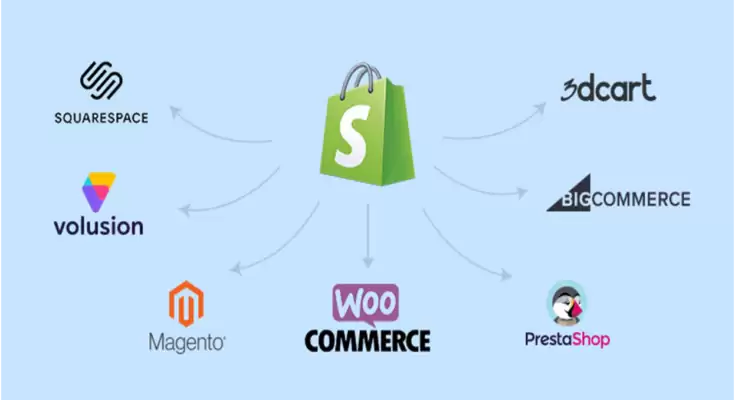In today’s internet age, users are the key to success. To provide them with a great user experience and keep them engaged with the brand, websites need to load quickly. Users expect fast response times and top-notch user experience on websites, which initially depend on the web hosting provider.
With the advancements in technology, web hosting has progressed much over the past few decades, leading to increased speed and efficiency. One of the latest technologies to hit the market is NVMe technology.
NVMe is a game-changer in the hosting world, especially for dedicated servers, which offer unparalleled performance and speed to its users.
If you are here to learn about NVMe and its benefits for dedicated servers, you have landed right. In this blog, we will discuss NVMe technology, its importance, and the benefits of NVMe for dedicated servers.
So, without further digressing, let’s dive into the details of NVMe!
What is NVMe Technology?
NVMe stands for Non-Volatile Memory Express. It’s the latest storage solution and a transport protocol designed specifically for solid-state drives (SSDs). It is the newest technology that is widely adopted and favored in the web hosting world due to its blazing-fast performance.
NVMe is designed to optimize the performance of SSDs by reducing latency and increasing input/output operations per second (IOPS). It delivers the fastest response time and highest throughput and improves the overall user experience.
Putting it simply, NVMe is a significant upgrade from traditional storage protocols such as SATA, making them a crucial component of high-performing web servers.
NVMe Form Factors
NVMe drives come in different form factors that can be installed on most servers. Some form factors use the standard PCIe (Peripheral Component Interconnect Express) slots, whereas others use the dedicated NVMe (Non-Volatile Memory Express) slots. The NVMe form factors include AIC, U.2 and U.3, and M.2. Let’s take a closer look at each one by one.
1. AIC (Add-in Card)
AIC stands for Add-in-cart NVMe drives. These are the most common and earliest form factors. These AICs are designed to plug into a PCIe slot on the motherboard and require the use of a PCIe 2.0 or 3.0 interface. The AICs come in two sizes, HHHL (Half Height, Half-length) and FHHL (Full height, Half-length).
2. U.2 and U.3
The U.2 form factor served as an interface for connecting SSDs via PCIe ports. It was improved for U.3, a connecting interface that supports SATA, SAS, and NVMe. U.3 additionally supported hot-swapping between drives based on firmware availability.
3. M.2
M.2 NVMe drives are smaller form factors that provide the installation interface for SSDs through M.2 slot. These are the enhancements to the U.2 form factor and provide interfaces for PCIe 3.0 or PCIe 4.0. They are ideal for ultra-compact systems such as laptops and small form-factor desktops.
Benefits of NVMe Technology for dedicated servers
Now that we’ve explored the NVMe drives in detail, it’s time to go over the benefits of using NVMe drives on dedicated servers. NVMe is a non-volatile memory express that is designed for the purpose of long-term data storage and high performance. NVMe is different from the typical non-volatile memory as it is designed to take full advantage of a high-speed PIC-based (Peripheral Component Interconnect Express) storage solution, which enables it to perform storage tasks in parallel rather than storing it sequentially. As a result, this speeds up the data transfer rates and boosts the server performance.
In addition, NVMe offers several other notable benefits that make it an excellent choice for dedicated server hosting. The most notable and significant benefits of NVMe technology are:
1. Speed: NVMe technology provides faster data transfer rates and lower latency than older storage protocols. This results in faster boot times, faster application load times, and improve overall server performance.
2. Efficiency: NVMe technology is more efficient than older storage protocols because it is designed to reduce latency and improve the overall user experience. Also, it uses less power and generates less heat, making it a more environmentally friendly and cost-effective option.
3. Scalability: NVMe technology is highly scalable and can handle large amounts of data. This makes it an excellent choice for all-size businesses that require high-performance storage for large databases, virtualization, and big data applications.
4. Reliability: NVMe drives are more reliable than traditional HDDs because they have no moving parts. This suggests that they are less likely to fail, resulting in less downtime and improved server reliability.
Benefits of M.2 NVMe Drives on Dedicated Servers
Since dedicated servers need to handle large data storage and speedy data transfer to provide fast response time and excellent user experience, the latest M.2 NVMe can be a game changer. For dedicated servers, M.2 NVMe drives offer several benefits over traditional hard disk drives (HDDs) and even SSDs. The most significant benefits of M.2 NVMe drives on dedicated servers are:
1. Smaller space requirement.
As discussed, the M.2 drives are smaller as compared to standard 2.5-inch SSDs. Thus, they require less physical space within servers. The smaller size can reduce the clutteredness of the server and provide you with additional storage space without using your much server space.
2. No SATA cable requirement.
Since M.2 drives can be installed directly in the motherboard through the M.2 connector, they do not require the use of SATA cables. The SATA cables can make the server cluttered and may result in the server overheating. Therefore, M.2 NVMe can be an ideal solution for your dedicated servers. In addition, you can use the M.2 connectors to install additional storage even when all the SATA slots are occupied.
3. Faster Data Transfer Rates.
As mentioned above, the installation of the M.2 drive on a server is done via a PCIe slot rather than a SATA cable. This enables the M.2 NVMe drive to transfer the data (to and from the computer) faster than it could with a SATA connection.
The NVMe drives provide the fastest data transfer rates by incorporating a high-speed PCIe interface with parallelized data storage processing. Thus, you can notably increase the site loading times and enhance the overall server performance by using the M.2 NVMe technology on your dedicated server.
Moreover, the RAID configuration with NVMe also enhances the data transfer rates. RAID configurations, when configured with software-based controllers, are easy to adjust and help with faster data transfer.
Final Thoughts
NVMe technology is a notable and important upgrade over traditional storage protocols such as SATA and SAS. It is a game-changer in the world of web hosting. It offers unparalleled speed, efficiency, and scalability, making it a superior choice for businesses that require high-performance storage for large databases and the fastest loading times. In addition, with the availability of different NVMe form factors, businesses can select the NVMe drive that best fits their needs.
It is crucial to remember that NVMe drives can be more expensive than traditional HDDs or even SSDs, but the benefits they provide make them a profitable investment for businesses that require blazing-fast performance. Here, we’ve covered everything there is to know about NVMe technology and its advantages for dedicated servers. We hope this post has helped you understand the benefits of utilizing NVMe in dedicated servers. Hence, if you want to improve the performance of your dedicated servers and allow websites to run at their best, NVMe is an investment worth making.
Also, as technology continues to advance, we can expect to see NVMe technology becoming even more popular in the world of web hosting and dedicated servers. Therefore, it is important to stay up to date with the latest advancements in technology to ensure that your business performs uninterruptedly and stays competitive in today’s fast-paced world.











